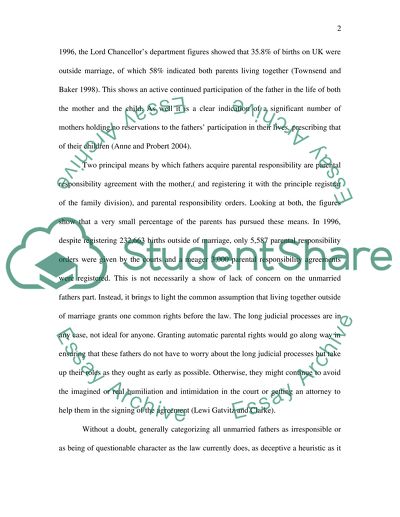Cite this document
(Regulating Marriage and Cohabitation Assignment, n.d.)
Regulating Marriage and Cohabitation Assignment. https://studentshare.org/sociology/1520668-should-all-fathers-be-given-parental-responsibility-automatically-by-the-law
Regulating Marriage and Cohabitation Assignment. https://studentshare.org/sociology/1520668-should-all-fathers-be-given-parental-responsibility-automatically-by-the-law
(Regulating Marriage and Cohabitation Assignment)
Regulating Marriage and Cohabitation Assignment. https://studentshare.org/sociology/1520668-should-all-fathers-be-given-parental-responsibility-automatically-by-the-law.
Regulating Marriage and Cohabitation Assignment. https://studentshare.org/sociology/1520668-should-all-fathers-be-given-parental-responsibility-automatically-by-the-law.
“Regulating Marriage and Cohabitation Assignment”. https://studentshare.org/sociology/1520668-should-all-fathers-be-given-parental-responsibility-automatically-by-the-law.


